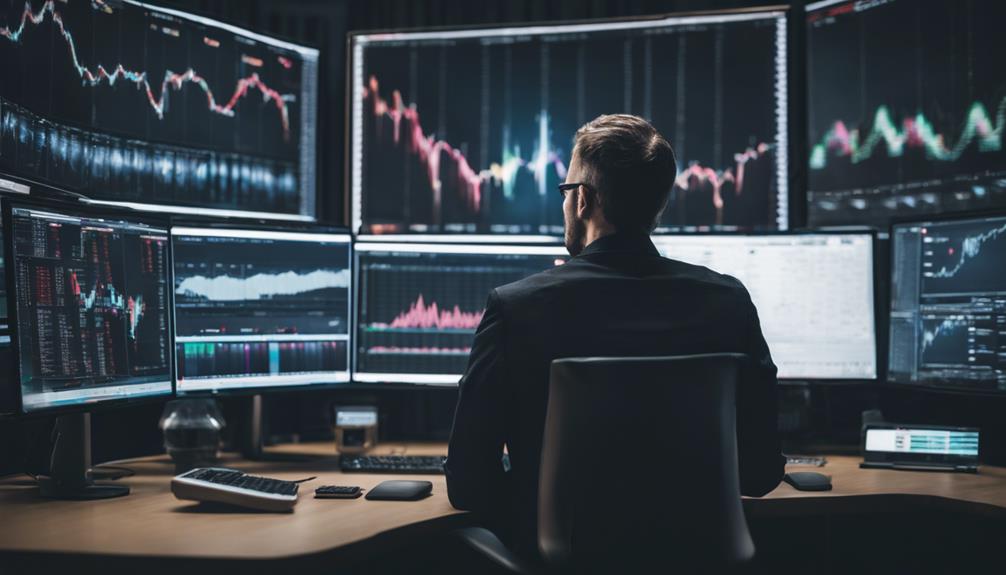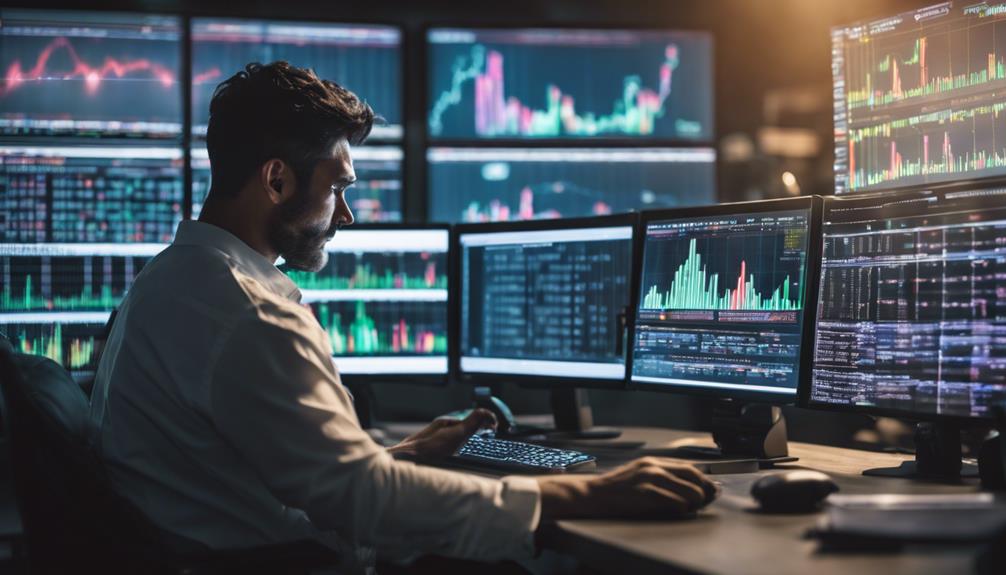The Van Tharp Institute offers a wealth of helpful advice for traders looking to excel in the financial markets.
Dr. Van Tharp, a renowned trading coach and psychologist, imparts valuable tips to enhance traders' decision-making skills and trading practices.
By blending cutting-edge research with actionable advice, the institute equips traders with the necessary tools to thrive in the demanding realm of trading.
Understanding Trader Psychology

Understanding trader psychology is really important when trading in the financial markets. Traders often have conflicting thoughts about the market and their investments, which can lead to confusion. By figuring out these conflicting thoughts, traders can make better decisions. It's also important to control your emotions when trading. Fear and greed can make you act impulsively and cause you to lose money.
Knowing how much risk you can handle is crucial. This helps you set limits on how much you're willing to lose and how big your trades should be, which affects how well your investments perform. Understanding how your brain works when making decisions is also key. Being aware of your biases and thinking habits can help you make smarter choices when things are uncertain in the market. By considering all these factors, traders can improve their performance and do better in the financial markets.
Overcoming Emotional Biases
To do better in trading, traders need to control their emotions. Emotions can make us do things we might regret later. Traders should be aware of their biases, like being too afraid of losing or feeling overly confident. It's important to find ways to overcome these biases.
One way to manage emotions is by practicing mindfulness. This means being aware of your feelings without letting them control you. By staying focused on the present moment, traders can make better decisions based on logic rather than emotions.
Another helpful strategy is to have clear rules for trading and stick to them. Setting specific points to enter and exit trades, along with plans to manage risks, can help reduce the impact of emotions on decision-making. Having a structured approach can make trading less influenced by feelings.
Developing a Winning Mindset

To develop a winning mindset in trading, you need to be strong and adaptable to handle the ups and downs of the market confidently. One way to boost your mental strength is by using positive affirmations. These are statements that help you believe in yourself and stay resilient when facing challenges. By repeating affirmations that focus on self-belief and persistence, you can build confidence and keep a positive attitude even when the market is unpredictable.
Another helpful technique is visualization. This means picturing yourself making smart decisions and achieving success in trading. By imagining these scenarios vividly, you can train your mind to stay calm, focused, and make better choices. Visualization can also help reduce stress and improve your decision-making skills by mentally practicing the behaviors you want to exhibit in trading.
Tools for Psychological Resilience
To become mentally strong in trading, traders can use techniques like changing how they think and staying focused. These techniques help traders manage their emotions and make better decisions when things get tough. By practicing mental toughness every day, traders can learn to recover from setbacks, adjust to market changes, and concentrate during difficult times.
One useful technique is to have a positive attitude towards failure, seeing it as a chance to learn and grow instead of a setback. This shift in thinking can boost traders' confidence and help them keep going when things get hard. Also, being mindful can improve traders' self-awareness and help them control their emotions, so they can make smarter choices when they're under pressure.
Implementing Psychological Strategies

To trade better, it's important to work on your mindset. Here are some simple strategies that can help:
- Stick to a Routine: Having a daily routine can keep you focused and disciplined in your trading.
- Set Clear Goals: Define specific goals to guide your trading decisions, especially during uncertain times.
- Stay Mindful: Practice mindfulness techniques to manage stress and make better choices under pressure.
- Manage Risks: Use tools like stop-loss orders to reduce emotional decisions and stick to your plan.
- Keep Learning: Continuously educate yourself and seek feedback to adapt to market changes and build resilience.